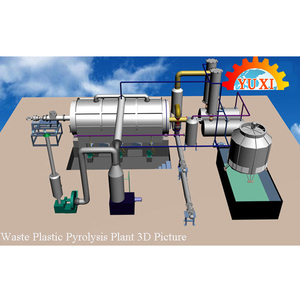Popular in your industry
































Top categories
About tyre oil
Tyre oil is a byproduct of the pyrolysis of tyre, a thermochemical process that involves the decomposition of rubber at elevated temperatures in the absence of oxygen. The resultant oil, also known as tire oil, has a dark color and a complex composition, containing various hydrocarbons, sulfur, and other elements. This oil has gained attention due to its potential applications in fuel and chemical industries, offering a viable alternative to conventional fossil fuels.
Applications of Tyre Oil
One of the primary uses of tyre oil is as a fuel source. The oil can be refined and processed to produce fuels such as diesel, gasoline, and heavy fuel oil. These fuels can be used in various applications, including powering vehicles, industrial processes, and heating systems. The tire oil can also be directly used as a fuel in certain combustion processes, providing an efficient and energy-rich alternative.
Another application of tyre oil is in the manufacturing of carbon black. Carbon black is a fine carbonaceous powder used in the production of tires, rubber products, inks, and pigments. The oil can be processed to extract carbon black through a controlled combustion process. This not only helps in recycling the carbon content of the tires but also reduces the environmental impact of tire disposal. The extracted carbon black finds extensive use in the rubber industry, enhancing the strength and wear resistance of rubber products.
Moreover, the tyre oil plant is a viable source of feedstock for the production of various chemicals. The oil's complex composition can be tailored to yield specific chemical compounds through refining and conversion processes. These chemicals find application in the manufacture of solvents, adhesives, and other industrial products. Additionally, tyre oil is used in the generation of electricity and heat. The oil can be burned directly in specialized boilers or furnaces to produce steam or hot water for industrial processes or district heating. The oil's calorific value, though lower than that of conventional fuels, makes it a suitable option for energy recovery from waste tires.
Advantages and Disadvantages of Tyre Oil
One of the significant advantages of tyre oil is its potential to address the issue of waste tire disposal. By converting used tires into oil, the process not only reduces the volume of waste but also offers an environmentally friendly solution. The oil, if used as a fuel, can help reduce the dependence on conventional fossil fuels, contributing to energy sustainability. The tire to oil plant can recover valuable resources from end-of-life tires, showcasing the plant's economic benefits in terms of resource utilization and energy recovery. Additionally, the oil's versatility allows it to serve as a feedstock for various chemical processes, opening avenues for the circular economy.
However, the production and use of tyre oil pose some challenges and concerns. The pyrolysis process, despite being efficient, requires careful control of operating conditions to ensure optimal yield and quality of the oil. Issues such as sulfur content, presence of contaminants, and the need for further refining may affect the oil's suitability for certain applications. There are concerns regarding the environmental impact of tire pyrolysis, particularly in terms of emissions and potential release of harmful byproducts. Therefore, proper emissions control and waste management practices are essential to mitigate these concerns.






























